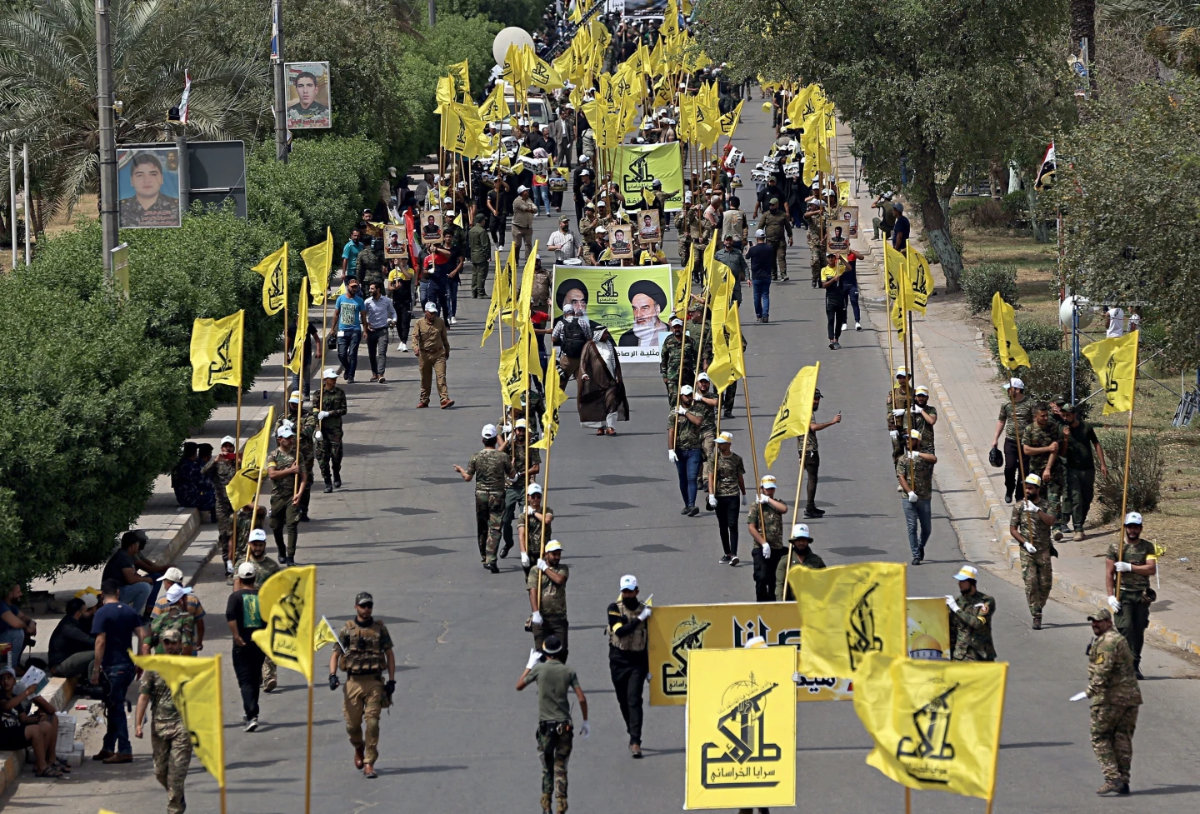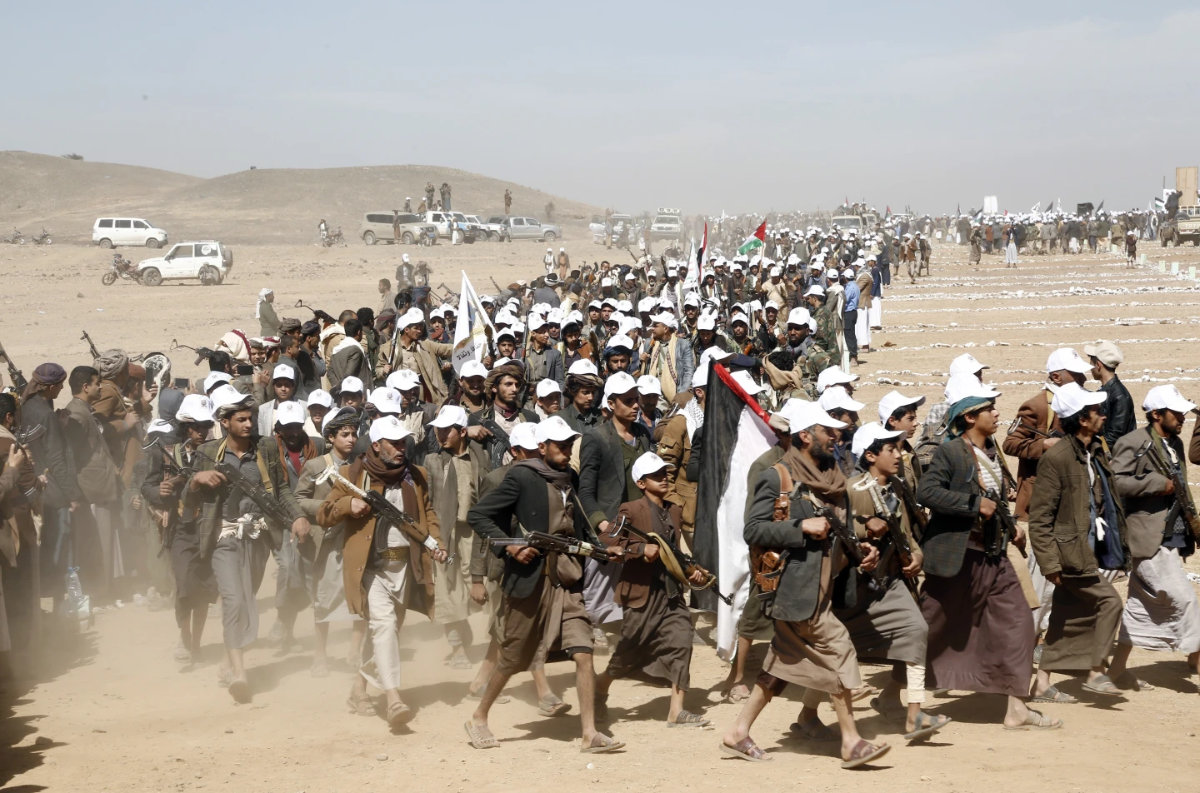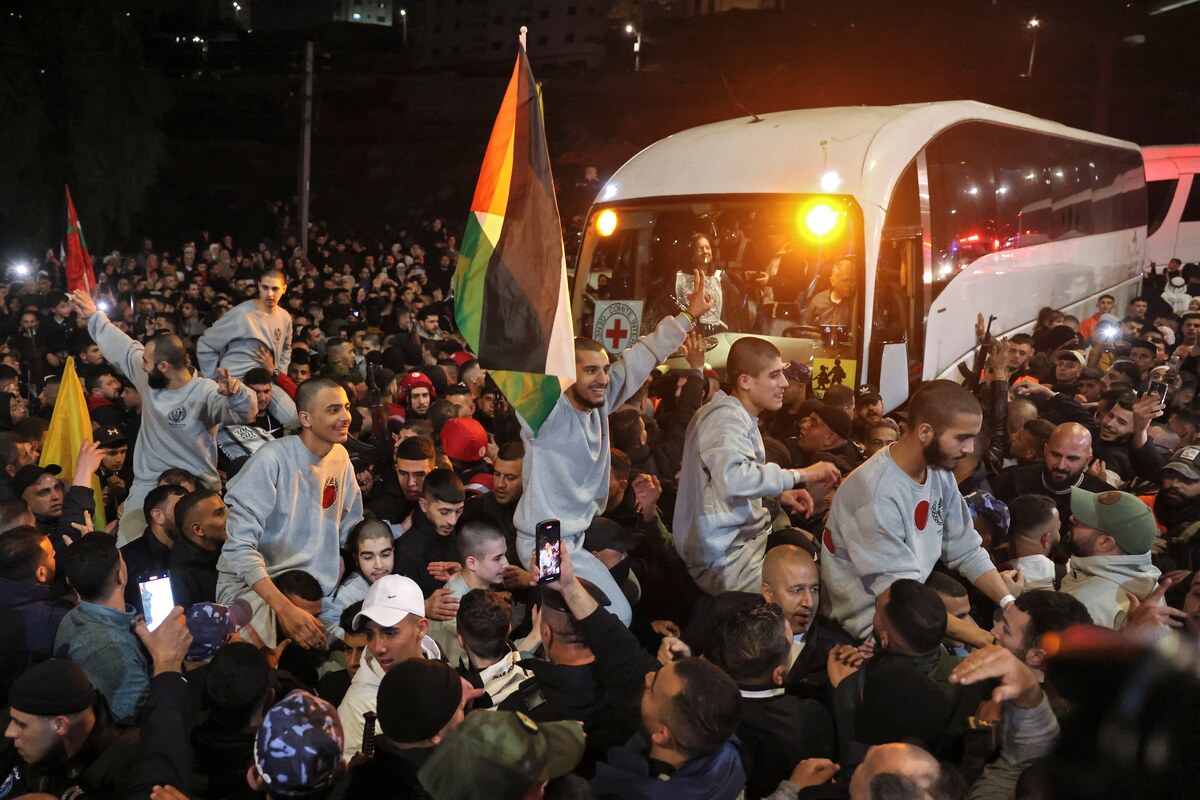BEIRUT: Thousands of fighters from Iran-backed groups in the Middle East are ready to come to Lebanon to join with the militant Hezbollah group in its battle with Israel if the simmering conflict escalates into a full-blown war, officials with Iran-backed factions and analysts say.
Almost daily exchanges of fire have occurred along Lebanon’s frontier with northern Israel since fighters from the Hamas-controlled Gaza Strip staged a bloody assault on southern Israel in early October that set off a war in Gaza.
The situation to the north worsened this month after an Israeli airstrike killed a senior Hezbollah military commander in southern Lebanon. Hezbollah retaliated by firing hundreds of rockets and explosive drones into northern Israel.
Israeli officials have threatened a military offensive in Lebanon if there is no negotiated end to push Hezbollah away from the border.
Over the past decade, Iran-backed fighters from Lebanon, Iraq, Afghanistan and Pakistan fought together in Syria’s 13-year conflict, helping tip the balance in favor of Syrian President Bashar Assad. Officials from Iran-backed groups say they could also join together again against Israel.
Hezbollah leader Hassan Nasrallah said in a speech Wednesday that militant leaders from Iran, Iraq, Syria, Yemen and other countries have previously offered to send tens of thousands of fighters to help Hezbollah, but he said the group already has more than 100,000 fighters.
“We told them, thank you, but we are overwhelmed by the numbers we have,” Nasrallah said.
Nasrallah said the battle in its current form is using only a portion of Hezbollah’s manpower, an apparent reference to the specialized fighters who fire missiles and drones.
But that could change in the event of an all-out war. Nasrallah hinted at that possibility in a speech in 2017 in which he said fighters from Iran, Iraq, Yemen, Afghanistan and Pakistan “will be partners” of such a war.
Officials from Lebanese and Iraqi groups backed by Iran say Iran-backed fighters from around the region will join in if war erupts on the the Lebanon-Israel border. Thousands of such fighters are already deployed in Syria and could easily slip through the porous and unmarked border.
Some of the groups have already staged attacks on Israel and its allies since the Israel-Hamas war started Oct. 7. The groups from the so-called “axis of resistance” say they are using a “unity of arenas strategy” and they will only stop fighting when Israel ends its offensive in Gaza against their ally, Hamas.
“We will be (fighting) shoulder to shoulder with Hezbollah” if an all-out war breaks out, one official with an Iran-backed group in Iraq told The Associated Press in Baghdad, insisting on speaking anonymously to discuss military matters. He refused to give further details.
The official, along with another from Iraq, said some advisers from Iraq are already in Lebanon.
An official with a Lebanese Iran-backed group, also insisting on anonymity, said fighters from Iraq’s Popular Mobilization Forces, Afghanistan’s Fatimiyoun, Pakistan Zeinabiyoun and the Iran-backed rebel group in Yemen known as Houthis could come to Lebanon to take part in a war.

Iraqi Popular Mobilization Forces march during Al-Quds or Jerusalem Day in Baghdad, Iraq on June 8, 2019. (AP/File photo)
Qassim Qassir, an expert on Hezbollah, agreed the current fighting is mostly based on high technology such as firing missiles and does not need a large number of fighters. But if a war broke out and lasted for a long period, Hezbollah might need support from outside Lebanon, he said.
“Hinting to this matter could be (a message) that these are cards that could be used,” he said.
Israel is also aware of the possible influx of foreign fighters.
Eran Etzion, former head of policy planning for the Israeli Ministry of Foreign Affairs, said at a panel discussion hosted by the Washington-based Middle East Institute on Thursday that he sees “a high probability” of a “multi-front war.”
He said there could be intervention by the Houthis and Iraqi militias and a “massive flow of jihadists from (places) including Afghanistan, Pakistan” into Lebanon and into Syrian areas bordering Israel.
Daniel Hagari, Israel’s military spokesman, said in a televised statement this past week that since Hezbollah started its attacks on Israel on Oct. 8, it has fired more than 5,000 rockets, anti-tank missiles and drones toward Israel.
“Hezbollah’s increasing aggression is bringing us to the brink of what could be a wider escalation, one that could have devastating consequences for Lebanon and the entire region,” Hagari said. “Israel will continue fighting against Iran’s axis of evil on all fronts.”
Hezbollah officials have said they don’t want an all-out war with Israel but if it happens they are ready.

Houthi fighters march during a rally of support for the Palestinians in the Gaza Strip and against the US strikes on Yemen outside Sanaa on Jan. 22, 2024. (AP/File photo)
“We have taken a decision that any expansion, no matter how limited it is, will be faced with an expansion that deters such a move and inflicts heavy Israeli losses,” Hezbollah’s deputy leader, Naim Kassem, said in a speech this past week.
The UN special coordinator for Lebanon, Jeanine Hennis-Plasschaert, and the commander of the UN peacekeeping force deployed along Lebanon’s southern border, Lt. Gen. Aroldo Lázaro, said in a joint statement that “the danger of miscalculation leading to a sudden and wider conflict is very real.”
The last large-scale conflict between Israel and Hezbollah occurred in the summer of 2006, when the two fought a 34-day war that killed about 1,200 people in Lebanon and 140 in Israel.
Since the latest run of clashes began, more than 400 people have been killed in Lebanon, the vast majority of them fighters but including 70 civilians and non-combatants. On the Israeli side, 16 soldiers and 11 civilians have been killed. Tens of thousands have been displaced on both sides of the border.
Qassir, the analyst, said that if foreign fighters did join in, it would help them that they fought together in Syria in the past.
“There is a common military language between the forces of axis of resistance and this is very important in fighting a joint battle,” he said.=






























